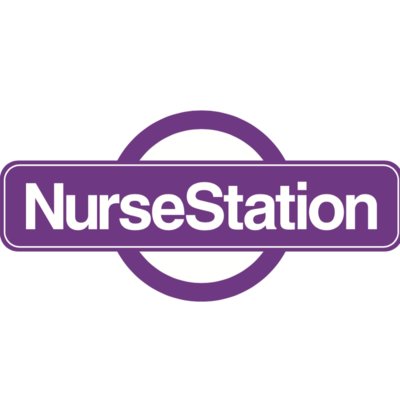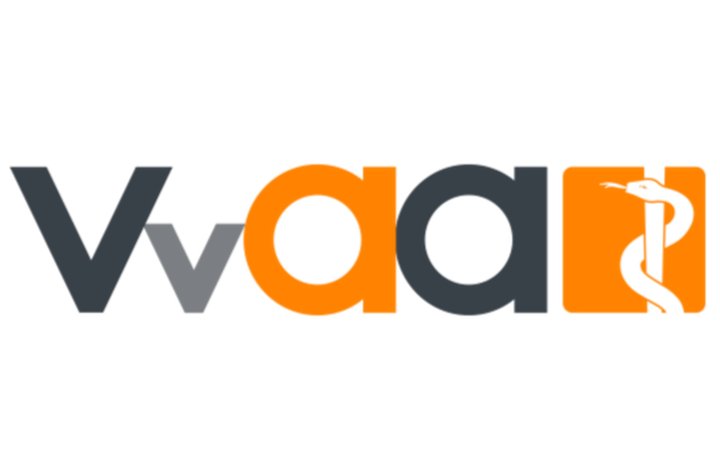University of Gloucestershire 2023
As a first-year learning disability nursing student at The University of Gloucestershire, I had the opportunity to undertake my elective placement overseas in The Philippines. The university suggested Work the World, and I was immediately interested.
Although torn between countries and concerned about finances, I ultimately found that placement with Work the World proved to be excellent value for money, and 100% worth it.
MyTrip — Work the World’s online placement planner — was so useful and it helped me keep organised while paying my trip off in instalments that suited me. The planner contained everything you could possibly want to know about Iloilo and about the placement itself.

It had an interactive timeline that helped me manage the `to-do’s’ and kept me on track. One of my favourite sections was the one that let me see the house I’d be staying in, Work the World’s in-country team and the housemates I would be living with. I was able to reach out to some of my then-future housemates prior to the trip. I spoke to those who would be arriving in Iloilo on the same day as me, which let us get to know each other before the trip and share our excitement and worries.
I had excellent support from the Work the World team in the UK. They scheduled a call with me to talk about what I wanted from the placement and which clinical areas I was interested in.

I split my six-week placement into three areas — two weeks on paediatrics, two on internal medicine and two on psychiatry. This was to give me the best chance of seeing how people with a learning disability were treated in The Philippines.
Having a member of the Work the World team meet me at the airport instantly reassured me. I met one of my roommates when I arrived at the house and we sat down to a delicious meal that had been laid out on the table ready for our arrival.
The following morning, the team took us out on a city orientation and then to our placement hospital for introductions. We travelled on a type of local transport called Jeepneys, which are their equivalent to the UK buses.

The team also showed us how to bargain for trike rides. Trikes are the Filipino version of a tuk-tuk and are so much fun. Following this, we went around the city with the team and did some sightseeing and shopping for necessities.
"The hospital staff then gathered outside, then said prayers and sang the national anthem."
We attended the flag ceremony at our placement hospital as part of our induction. The hospital staff then gathered outside, then said prayers and sang the national anthem. While this was happening, the flag was slowly raised.
Words of thanks were given to retiring staff, special recognitions were announced, and newcomers were welcomed. Lastly, we students were called one by one and officially welcomed to the hospital. It was such a lovely event to be part of, and it was nice to experience this as it’s not something we would typically do in the UK.

The Work the World house in Iloilo was stunning. It was an old factory transformed into a traditional house. It retained lots of its original elements and they added to the charm.
The house was spacious, with two parts — the main house and an additional building with more rooms, a large lounge, and a well-equipped kitchen and dining area. There was a lovely courtyard in between the two buildings and a beautiful communal area outside, where I could sit and read a book on the veranda.
The in-house chefs were exceptionally talented, and I enjoyed every meal they prepared. The local delicacies like banana bread, brownies, and, of course, the mango, were delightful. The quality of the food was so outstanding that you couldn't resist wanting more!

My favourite nights were the weekly BBQ nights, and karaoke night on Thursdays. The whole house came together and sang songs, including the Work the World staff!
When I started my placement, I didn’t have many competencies. So, I acted within my professional proficiencies, and that meant that my placement was mostly observational.
"I was able to administer several medications and felt confident doing so."
However, local nurses were great at involving me in the medication administration process. I was able to administer several medications and felt confident doing so. The medication cards used in the local system are colour-coded, which was a noticeable difference when compared to the NHS.

During my time in paediatrics, I made sure to actively ask the local nurses questions about interventions. My aim was to demonstrate my eagerness, which in turn allowed me to get more involved.
I spent time in psychiatry too, and this enabled me to observe a patient with autism and ADHD, both of which were treated very differently in The Philippines when compared to the UK. It was quite confronting because the patient had a history of distress. She was held down using restraints, which must have been traumatising.
I learned that another female patient had been brought into the psych department because her family believed she was ‘possessed’. In reality, she had suspected Epilepsy. I transpired that in rural areas where there is limited education (especially medically), epilepsy can be interpreted as a kind of spiritual disharmony, rather than something physiological.

The experience made me realise just how fortunate we are to have access to a range of services for people with learning disabilities in the UK. The situation is different in The Philippines, where very little support is available.
"...there is still a lack of practical help for people with learning disabilities."
There is a learning disability awareness week in February and an autism conscientious week every third week of January, which suggests that progress is being made. However, after speaking with nurses and parents in the Philippines, it seems that there is still a lack of practical help for people with learning disabilities.
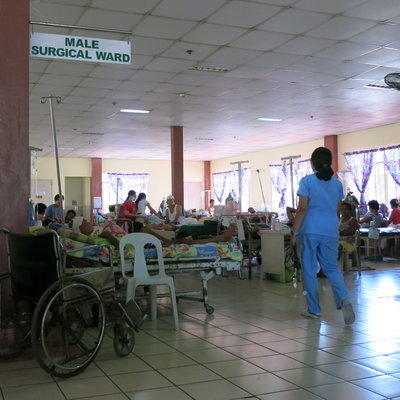
The role of a learning disability nurse does not exist in The Philippines. So, I explained my role to the local nurses, including the conditions some people present with, and the care and support the role provides in the context of the NHS.
Explaining it in a way that made sense was challenging, but it felt good to be advocating for people. As I learned from local staff, they gained knowledge from me about learning disability care and support. It was an exchange.
In the NHS, nurses are responsible for providing personal care and feeding patients. But in The Philippines, these tasks fall to patients’ families. The patients' families stay with them around the clock to cater to their needs.

I observed healthcare assistants washing patients when I was in MICU, but the circumstances were very different from what I was used to in the NHS. There were no curtains, which meant all the patients could see each other even during washing.
It was challenging to resist the urge to cover patients but I didn’t want to be disrespectful by imposing my views. I was there to learn, which I did — the staff and nurses were wonderful and I gained invaluable experience from them during my placement.

During my first weekend, my housemates and I took a trip to Cebu. We had a great time canyoneering, island hopping, snorkelling, and visiting beautiful waterfalls. Swimming with whale sharks was an unforgettable experience that made the trip even more special.
We went to beautiful Boracay for our second weekend. It was a paradise with white sandy beaches, crystal-clear sea and palm trees. The highlight of that weekend was canoeing in the sea followed by a sunset boat party. Later, I went to Islas de Gigantes with some new friends I made when the weather improved.

We stayed there for the weekend and enjoyed fresh seafood, fire dances, island hopping, and trekking up to the dragon fruit plantation and the local village.
Lastly, I visited Guimaras for a day trip where we relaxed on the beach and tried some of the local cuisine. I had incredible fun with the best people at the weekends.

I was incredibly nervous about flying long-haul on my own for the first time, and about going to a hospital overseas with a language barrier. That and getting to and from my placement.
Despite my initial fears, I proved myself wrong and gained a lot from my placement. I'm very proud to have navigated a placement in a Filipino hospital and successfully undertaken this journey.
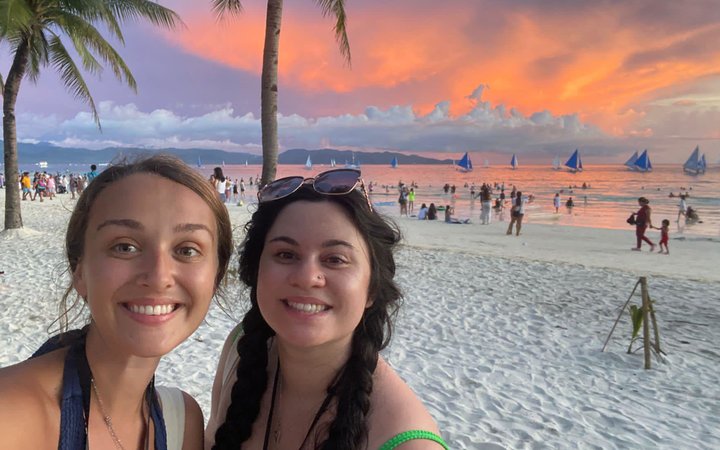
"Since completing my elective placement, I have become much more confident."
Looking back on my journey, I can confidently say that it has been the best experience of my life. As for my employability after this placement, I am confident that the unique experience I've gained will be highly valuable and will make me stand out to potential employers. Would I recommend this to other students? Absolutely!
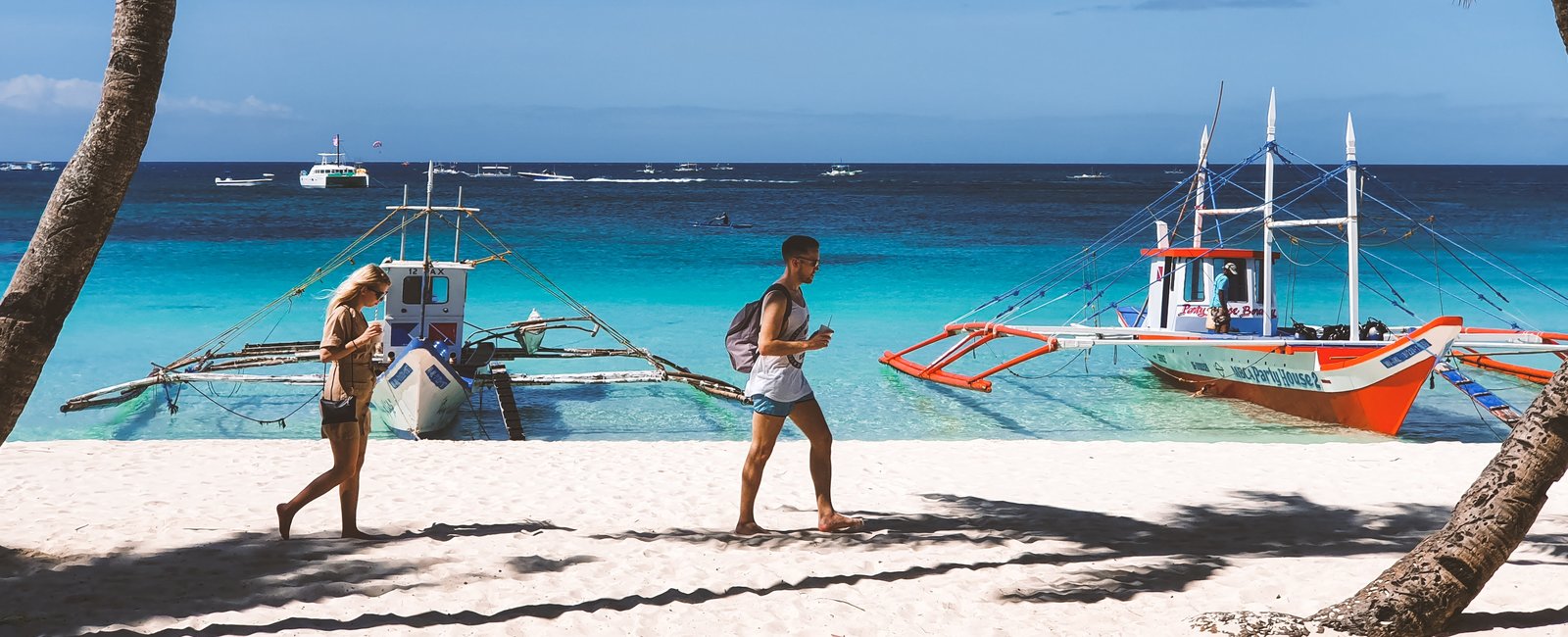
Start Your Journey
Want to go on your own once-in-a-lifetime adventure? Get started below:
Want to go on your own once-in-a-lifetime adventure? Get started below:

%20%203%20(1).jpg)
%20Thumbnail.png)
